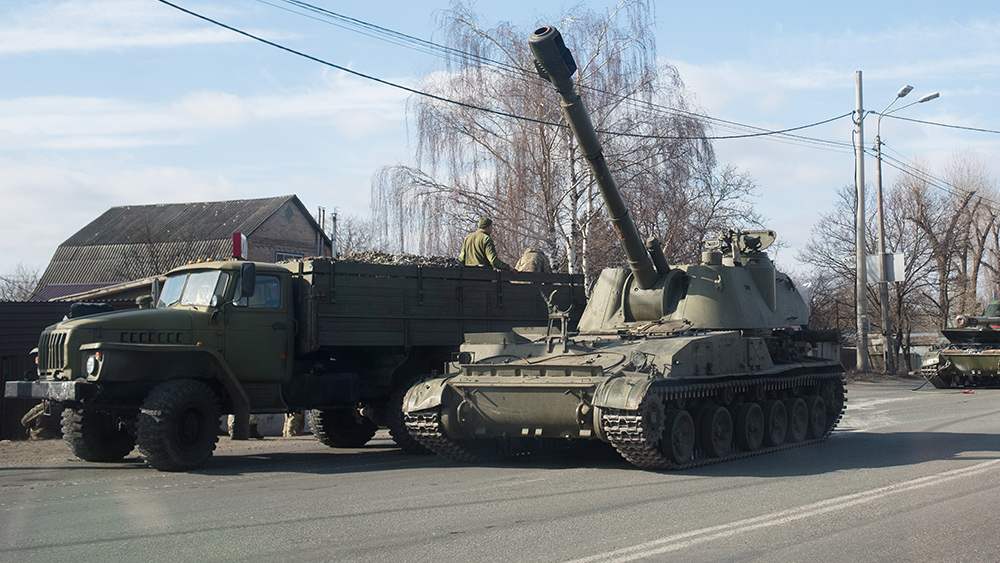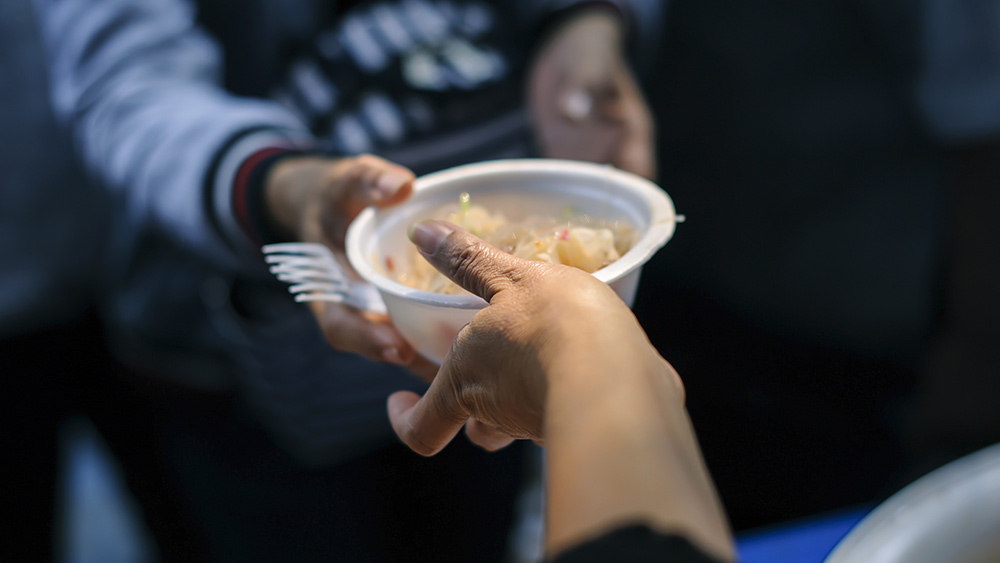WATER CRISIS INCOMING: Mexico City only months away from totally running out of water
02/28/2024 / By Arsenio Toledo

Mexico City, one of the largest cities in the world, may be just months away from running out of water.
The megacity of approximately 22 million people has been suffering from a state of drought, classified as moderate to exceptional, since the beginning of the year.
Factors, including the weather – diminished rainfall and increased local temperatures – have combined with Mexico City’s ill-equipped infrastructure and rapidly expanding urban sprawl to push the city’s already limited water supply further to the brink.
Alejandro Gomez, a resident of Mexico City’s southern Tlalpan district, has been without proper running water for more than three months. Sometimes he only has water for one or two hours every few days, but the flow through his pipes comes at a trickle, barely enough to fill several buckets.
When Gomez and his family use water to wash themselves, they capture the runoff and use it to flush their toilet. “It’s hard,” he said. “We need water, it’s essential for everything.”
While water shortages are not uncommon for Tlalpan, Gomez noted that this time, it feels different, worse even.
“Right now, we are getting this hot weather,” he warned. “It’s even worse, things are more complicated.”
“Day Zero” just months away for Mexico City, warn experts
Years of abnormally low rainfall, longer dry periods and higher temperatures have increased the stress on Mexico City’s water system, which is already straining to cope with increased demand caused by the drier weather.
Experts have warned that without drastic measures, “Day Zero,” where freely available water services completely collapse across the megacity, could be just a few months away.
“We’re extracting water at twice the speed that the aquifer replenishes,” warned Jorge Alberto Arriaga, the coordinator of the water network for the National Autonomous University of Mexico. “This is causing damage to infrastructure, impacts on the water system and ground subsidence.”
Roughly 60 percent of Mexico City’s water comes from an underground aquifer. The remaining 40 percent is pumped uphill from outside the city. Decades of extracting more than the aquifer can replenish has caused Mexico City to sink at a rate of around 20 inches per year since 1950. (Related: Mexico City’s sinking at “unstoppable rate” of up to 20 inches a year, study finds.)
Worse yet, around 40 percent of the pumped water gets lost in transit to homes and businesses in Mexico City due to leaky water infrastructure. And as much of the once-permeable ground in the megacity is now covered in concrete, the lost water doesn’t always seep back into the aquifers.
To stave off the coming of Day Zero, officials in the self-governing city-state have restricted water access for many of its residents to an hour or so of water every few days.
City officials have also begun digging for more wells around the city, alongside improving wastewater treatment infrastructure to ensure that all residents get enough water. But whether or not these efforts avert Day Zero, or whether its arrival is a foregone conclusion, remains to be seen.
“We have to consider that Day Zero is now, because the rivers are contaminated, the springs are overexploited, this is what we must understand,” warned Jose Antonio Rodriguez Tirado, a water management consultant who advised the Mexican Chamber of Deputies – the lower house of the country’s legislature – on the crisis.
The drought is expected to get worse in the coming months due to this year’s El Nino climate pattern, which has boosted temperatures in Mexico and all across Latin America. The monsoon season and the yearly rains are not expected to arrive until May or June, meaning that the city’s 22 million people may have to live under drought-like conditions for months more until there is a reprieve.
Learn more about other places around the world experiencing droughts and other water crises at WaterWars.news.
Watch this episode of “AirTV International” as hosts Sandy Kaye and Rodney Hearth talk about droughts all over the world.
This video is from the AirTV International channel on Brighteon.com.
More related stories:
WATER WARS: Water is emerging as a focal point of conflicts from Ukraine to the Middle East.
RATIONING BEGINS: California water board to require reduced indoor water use for citizens.
South African “race quotas” will limit WHITE residents’ access to water.
Sources include:
Submit a correction >>
Tagged Under:
chaos, collapse, crisis, drought, environment, Mexico, Mexico City, water, water crisis, water rationing, water shortages, Water Wars, weather
This article may contain statements that reflect the opinion of the author
RECENT NEWS & ARTICLES
COPYRIGHT © 2022 Rationing.News
All content posted on this site is protected under Free Speech. Rationing.News is not responsible for content written by contributing authors. The information on this site is provided for educational and entertainment purposes only. It is not intended as a substitute for professional advice of any kind. Rationing.News assumes no responsibility for the use or misuse of this material. All trademarks, registered trademarks and service marks mentioned on this site are the property of their respective owners.


















